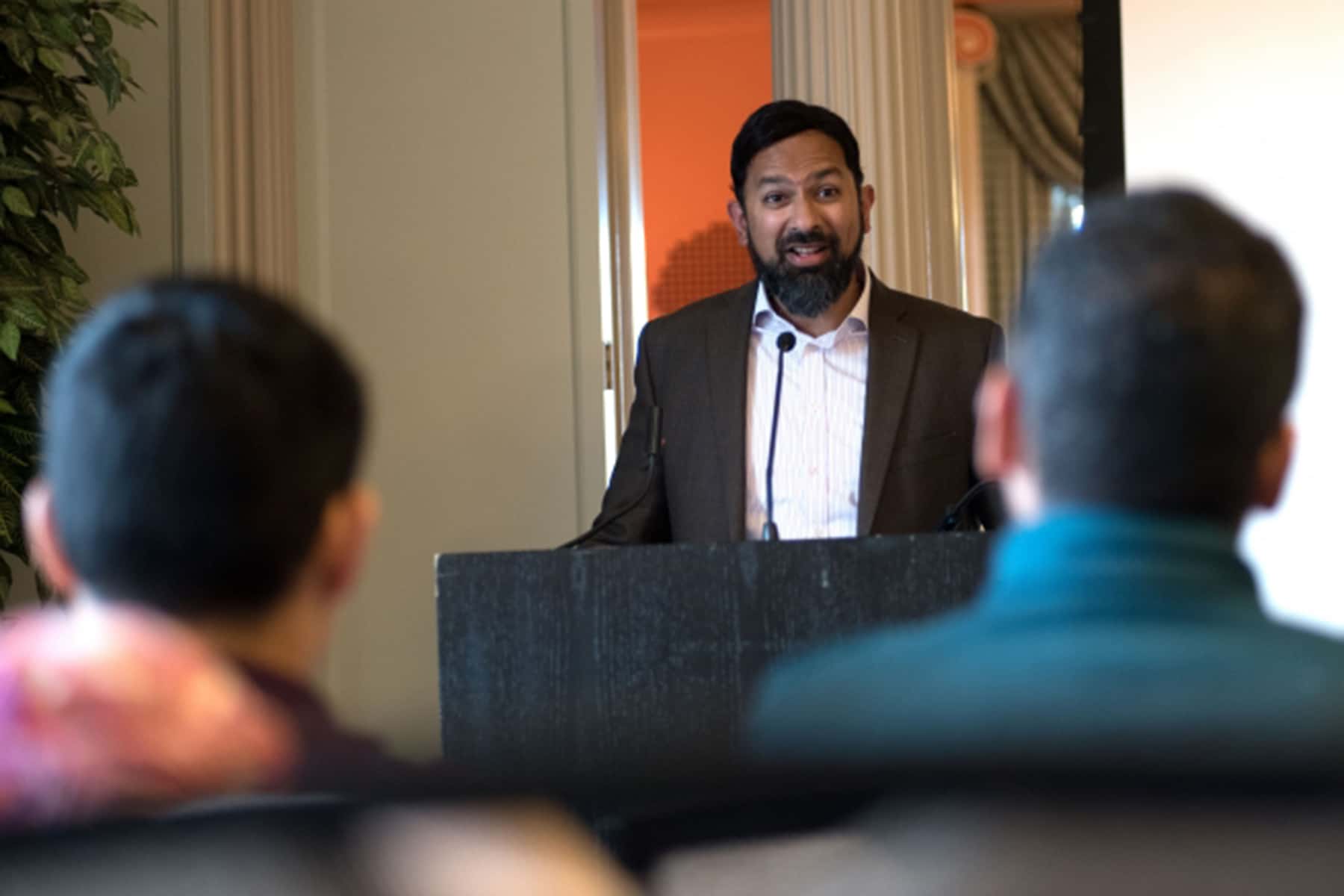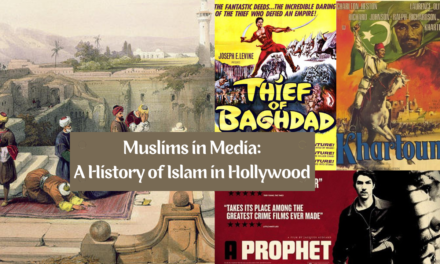
Referencing Muslim wrestler Khabib Nurmagomedov’s performance in an Ultimate Fighting Championship match on October 6, Dawud Walid asked Sakinah Rahman, a Muslim college student wearing a long, loose black dress paired with a colorful headscarf, why she dressed so conservatively in comparison.
Walid’s question had no malicious intent. In fact, Walid is the executive director of Michigan’s chapter of the Council on American-Islamic Relations, a civil rights and advocacy group.
“That Khabib guy, he was out there last night wearing those short-shorts. Why do you look all oppressed, covered up and all?”
The question was part of an exercise that sought to teach young Muslims how to speak about Islam and in some cases answer contentious questions.
The University of Michigan organized the event, titled “Presenting Islam to Fellow Americans,” in the hope it would give young Muslims the tools to articulate answers to questions about their faith.
The training featured three sessions: Haaris Ahmad, the CAIR-Michigan board president, led the first one on body language; Asha Noor, the CAIR-Michigan programming and outreach director, led the second one on conflict-resolution; and Walid led third on answering frequently asked questions. Ahmad said the workshop is relevant in today’s political climate where many Americans have questions about Muslims and Islam.
“Obviously people are being called upon to explain their faith, to explain their experience, to unfortunately have to comment on world events even as young college students, young teens, when they would not have been asked about these things in the past,” Ahmad said. “That’s why a training of this sort, or this type of session, is needed.”
As a Muslim woman who wears a headscarf, Rahman said she is constantly asked questions, ranging from gender equality to daily prayer to terrorism. She believes this workshop equipped her with the skills needed to articulate her beliefs.
“For me, because I choose to cover, people are just always asking questions,” Rahman said. “I’m always put in a position to where I’m not so qualified to answer this question, but I’m their only source right now. Because if it’s not going to be me, they’ll find websites that’ll give them false information or they’ll ask another person who might be Muslim but might not have the correct understanding. For me it’s different, because I might have the correct understanding I just don’t know how to articulate it and I might not know all the facts around it, but for most topics I have a really good foundation for why things are the way they are in Islam.”
Another participant, Mohammad, who wishes not to share his last name, is a visiting researcher from Egypt studying linguistics and translation at the University. Living with housemates who do not share the same faith as him, he attended the workshop hoping to learn how to better answer their questions on Islam.
Mohammad said the workshop taught him to empathize with the questioner and be authentic in one’s answers.
“My first thing is to put yourself in others’ shoes,” he said. “If someone is asking you about your faith and your religion, don’t be worried, don’t be defensive. You should feel comfortable with that. Don’t think that they have malicious intentions or they want to harass you. Just be comfortable, maybe they are just curious and they want to understand. Just be yourself.”
For a workshop centered on modern-day advocacy, much of the advice shared with attendees was based on prophetic tradition, or the sunnah, something many Muslims use as an example of how to live their everyday lives.
Walid cited examples of Prophet Muhammad repeating something three times if he wanted to emphasize a point, or simply remaining calm when others engage in disrespectful or offensive behavior. He emphasized the importance of staying true to one’s religion when conducting cross-cultural dialogue.
“From our discourse, Muslim is firstly a faith identity grounded in values and principles,” he said. “Hence, my discussion about answering questions about Muslims and Islam, as well as my two colleagues, relates to this grounding within a faith identity. For those who see Muslim as firstly a quasi-ethnic or racial identity, perhaps some of these talking points may not resonate with them.”
Ahmad said the workshop allowed him to learn about different perspectives and issues facing college-aged Muslims. One example he cited was the generational gap in approaching faith – many Americans from older generations are associated with Christianity while many young Americans are atheist or agnostic.
“Often times the examples we use would probably be associated with people of some sort of faith, but today in the workshop a young lady raised the issue of a lot of the questions coming from atheists or agnostics, and so there’s a different perspective there. So there’s always something we learn,” Ahmad said.
Furthermore, he emphasized the importance of people of different faiths discussing their unique experiences in an open way.
“Generally, I think it’s important not only for Muslims to reach out and share their openness to discuss their faith and their own experiences, but it’s also important for Muslims and non-Muslims to listen to each other, and seek those conversations in a respectful manner.”
Engineering senior Anam Khan said she enjoyed the event because it helped her learn how to discuss the issue of faith more productively with those not educated about her religion.
“The event today was beneficial and equipped me with practical tools for discussing my religion,” she said. “Oftentimes I get asked questions and may not know how to respond, but the PIFTA workshop taught me how to speak about my faith productively.”
Zayna Syed
Max Kuang
Originally published as MSA hosts “Presenting Islam” panel to help students articulate their faith













